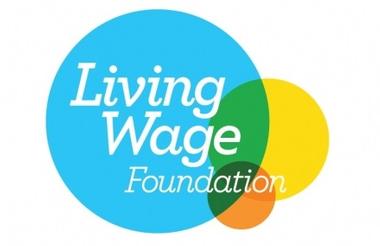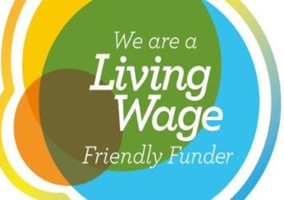The Living Wage Foundation has launched an action plan and is calling on government and charities to work together to address low pay in the sector.
Government cuts, as well as low awareness of the real living wage, have led to a “race to the bottom environment”, the campaign said, which is why it has launched the plan Tackling Low Pay in the Charity Sector: An Action Plan.
Last November, the Living Wage Foundation published a report which found that over a quarter of charity workers are paid below the real living wage - higher than the UK average of 21 per cent. A Civil Society News analysis of the largest 100 charities found that just 13 were accredited by the Living Wage Foundation.
The Living Wage Foundation has now held discussions with charities, umbrella bodies, trade unions and funders to identify barriers.
It found that one of the biggest barriers were government funding cuts creating a “race to the bottom” environment putting pressure on wages.
The other main barrier was and a lack of awareness about the Real Living Wage campaign combined with the public perception that charity work should be voluntary and that as much money as possible should go to beneficiaries.
Sector has a ‘huge problem’
The Living Wage Foundation called on the sector and the government to take action to enable charities to pay people more.
Tess Lanning, director of the Living Wage Foundation, said: “The huge scale of low pay in the sector reflects the fact that charity work is often unappreciated. But charity workers deliver childcare, social care, women’s refuges and other vital services to some of the most vulnerable people in our society. They deserve a real Living Wage that covers the cost of living.”
“We now need to see government and the sector work together to deliver real change, and commit more charities to go beyond the government minimum and pay a real Living Wage.”
John Hume, chief executive of the People’s Health Trust, said: "It's clear the charity sector has a huge problem with low pay. There are thousands of charities doing great, important work, but too often they are struggling to provide decent pay, with black and ethnic minority, part-time and young workers hit the hardest.
"Charities have had to deal with deep cuts in funding which in turn has meant passing on this financial squeeze to already struggling workers.
"If we are to address this issue then we need to go to the root cause. The action plan calls on commissioners and funders to recognise the intrinsic value of paying the real Living Wage and to begin to see a concerted effort from all parties to drive this change through the sector. We need to see more funders and commissioners provide a real Living wage that covers the cost of living, and more charity workers receiving a fair day's pay for a hard day's work."
Solutions
The Living Wage Foundation is calling on commissioners to procure services on the basis that people should be paid the real living wage.
It is also encouraging more funders to sign up to its Friendly Funders scheme.
The campaign also wants charities that pay the real living wage to champion it publicly by doing things like adding the Living Wage badge to their website and using it in recruitment material.
It also suggested that recruitment websites and funding finder tools add an option to filter by organisations signed up to the movement.
|
Related articles











